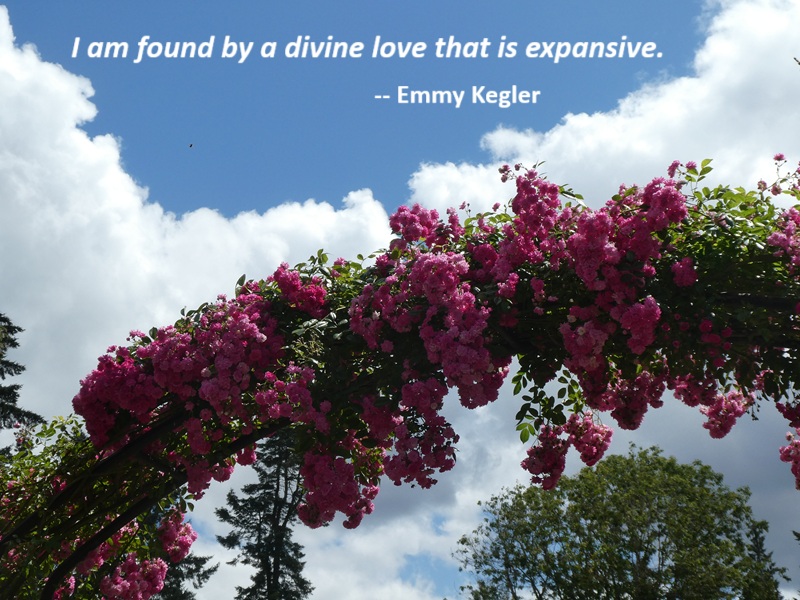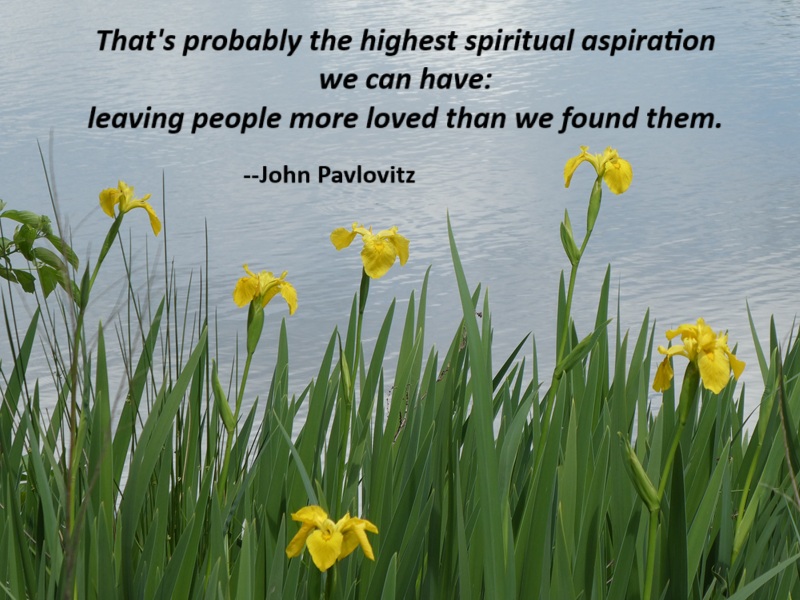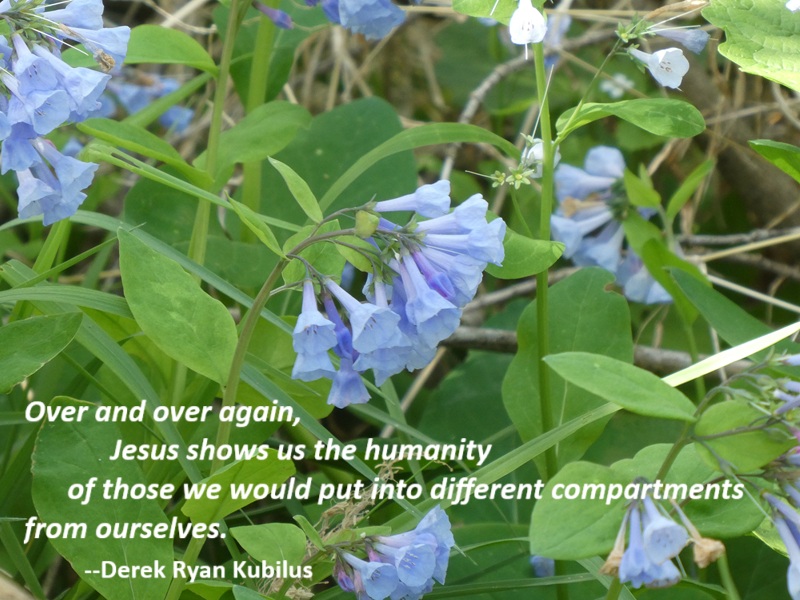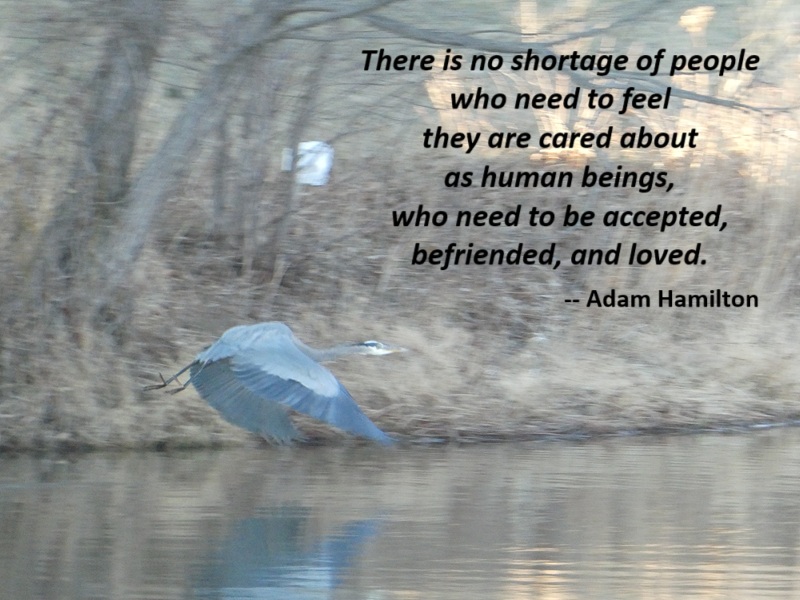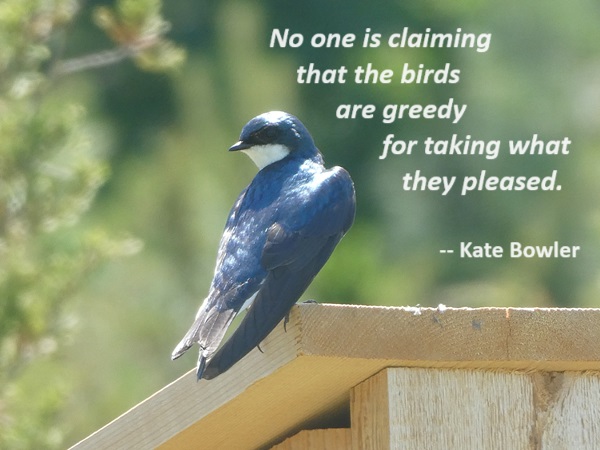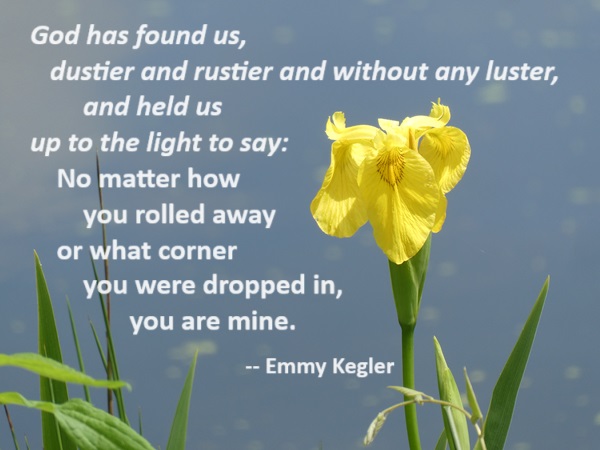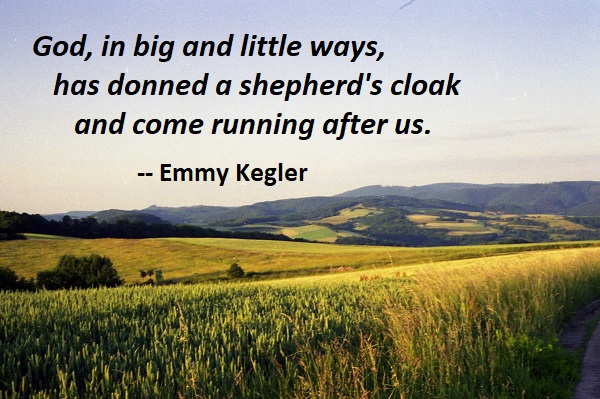Expansive Love
I am found by a divine love that is expansive. Every time I have reached the edge of how far I believed love could go, I have found myself instead standing in the middle of where love has already been. Love is not up for in-groups and out-groups, for tents that can only stretch so far or tables that can only seat so many. Love keeps going. Love casts a wider net each time and drops itself down from the heavens burdened with uncleanliness to cry out, What I have called clean you must not call unclean. Love has no tolerance for intolerance. When the people of God told stories of exclusion, the men casting out their foreign wives and children, love wrote the story of Ruth, the foreigner as or more loyal than any woman of Israel.
— Emmy Kegler, One Coin Found, p. 176
Photo: International Rose Test Garden, Portland, Oregon, June 18, 2025
